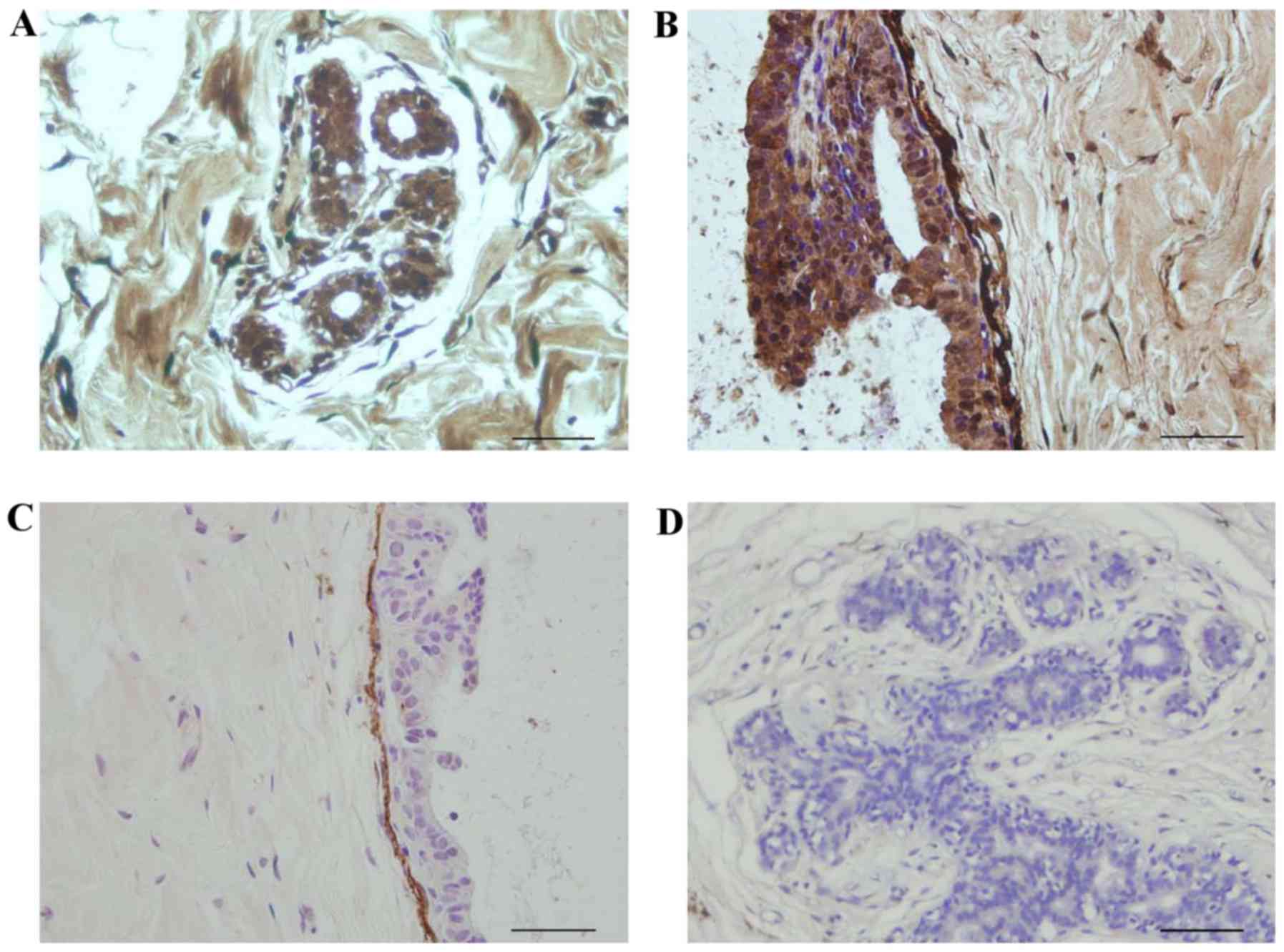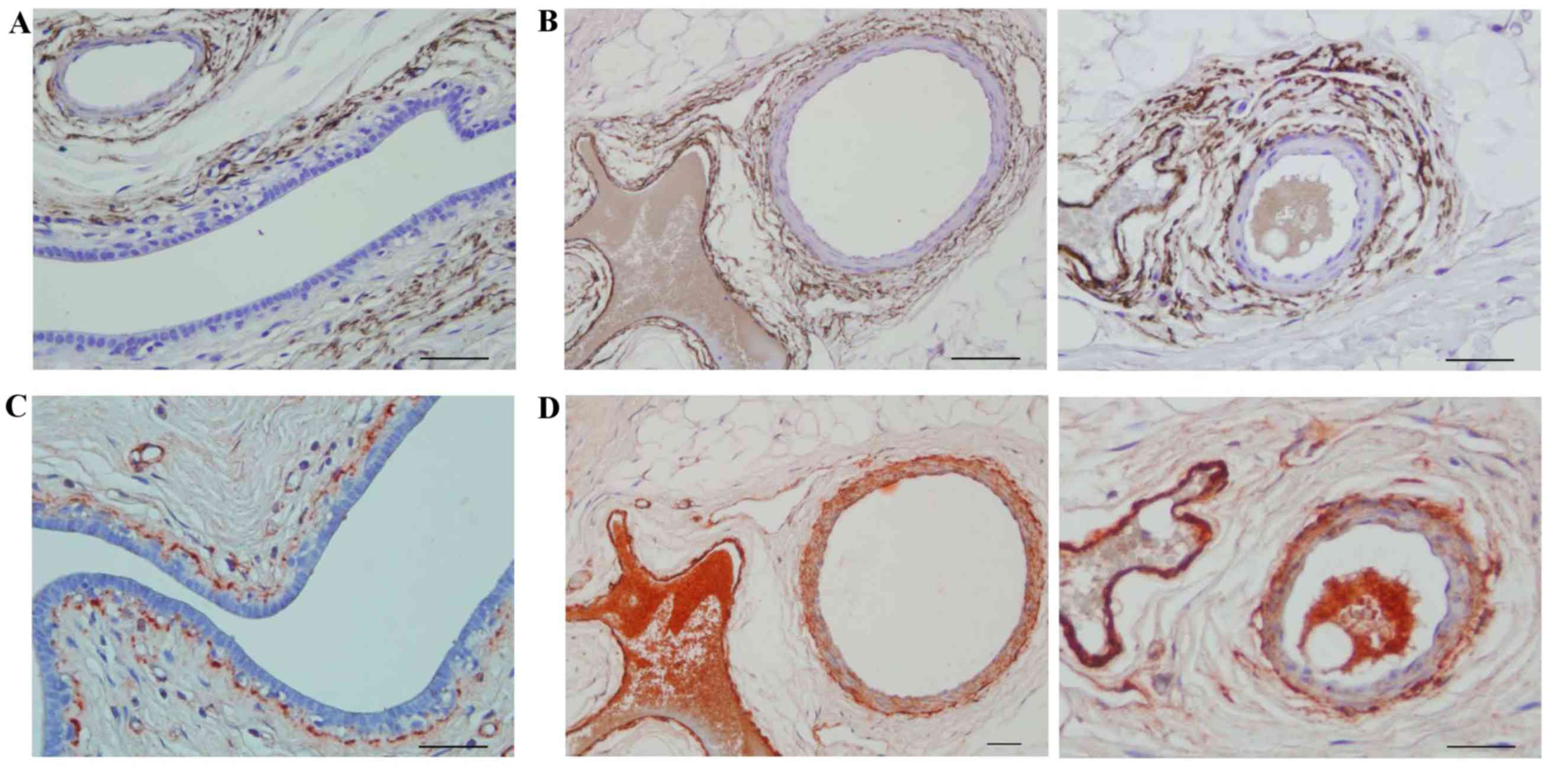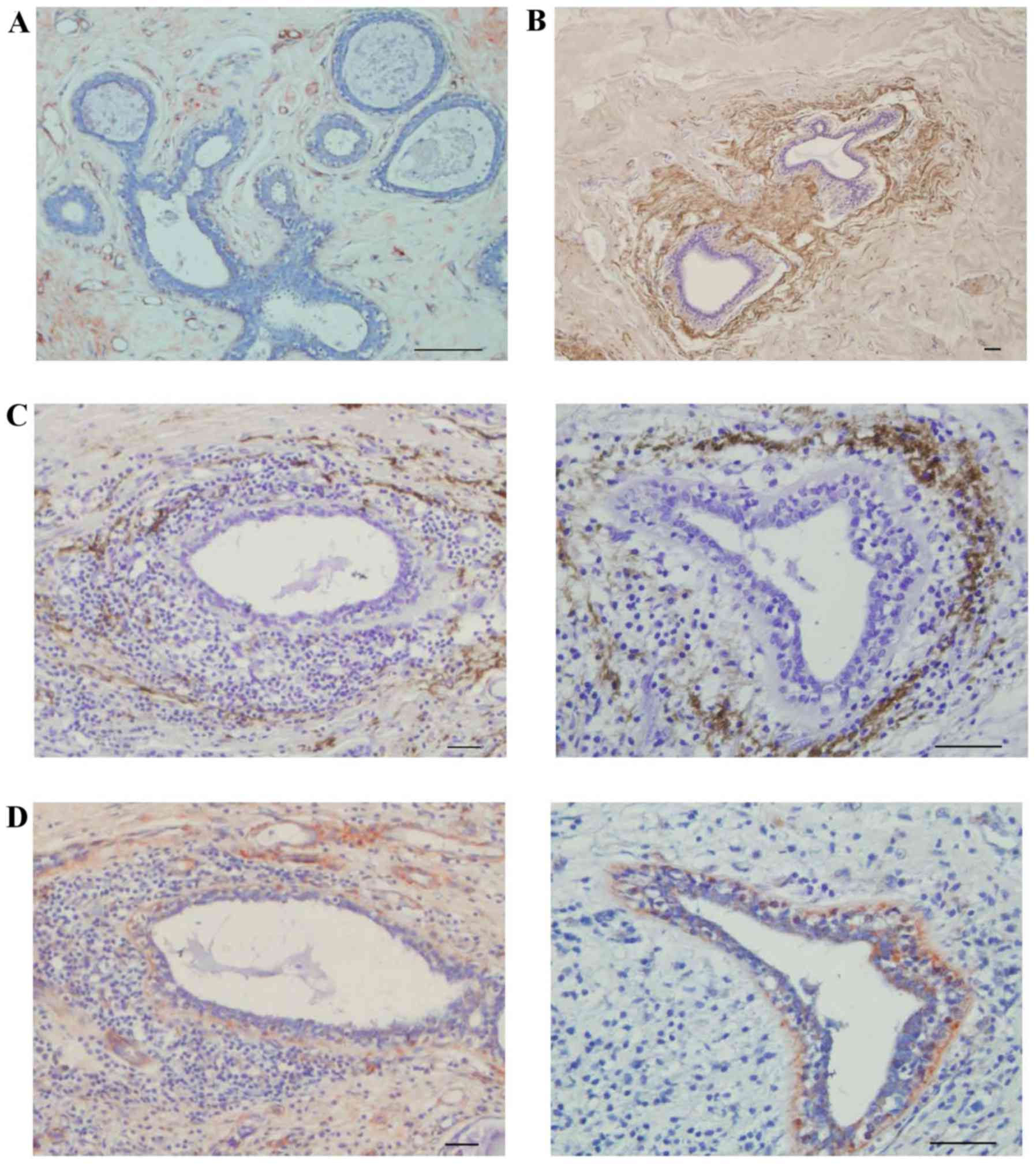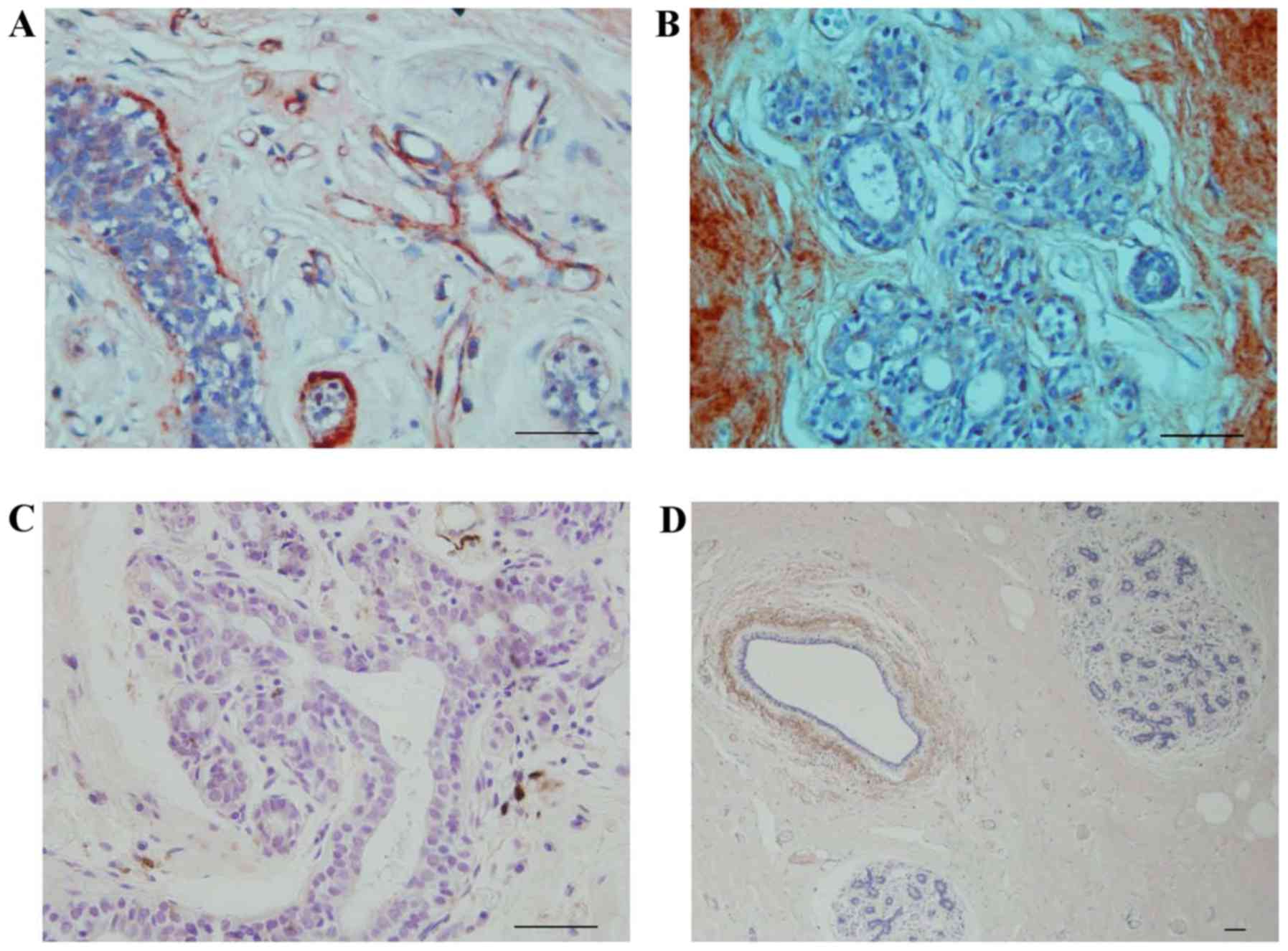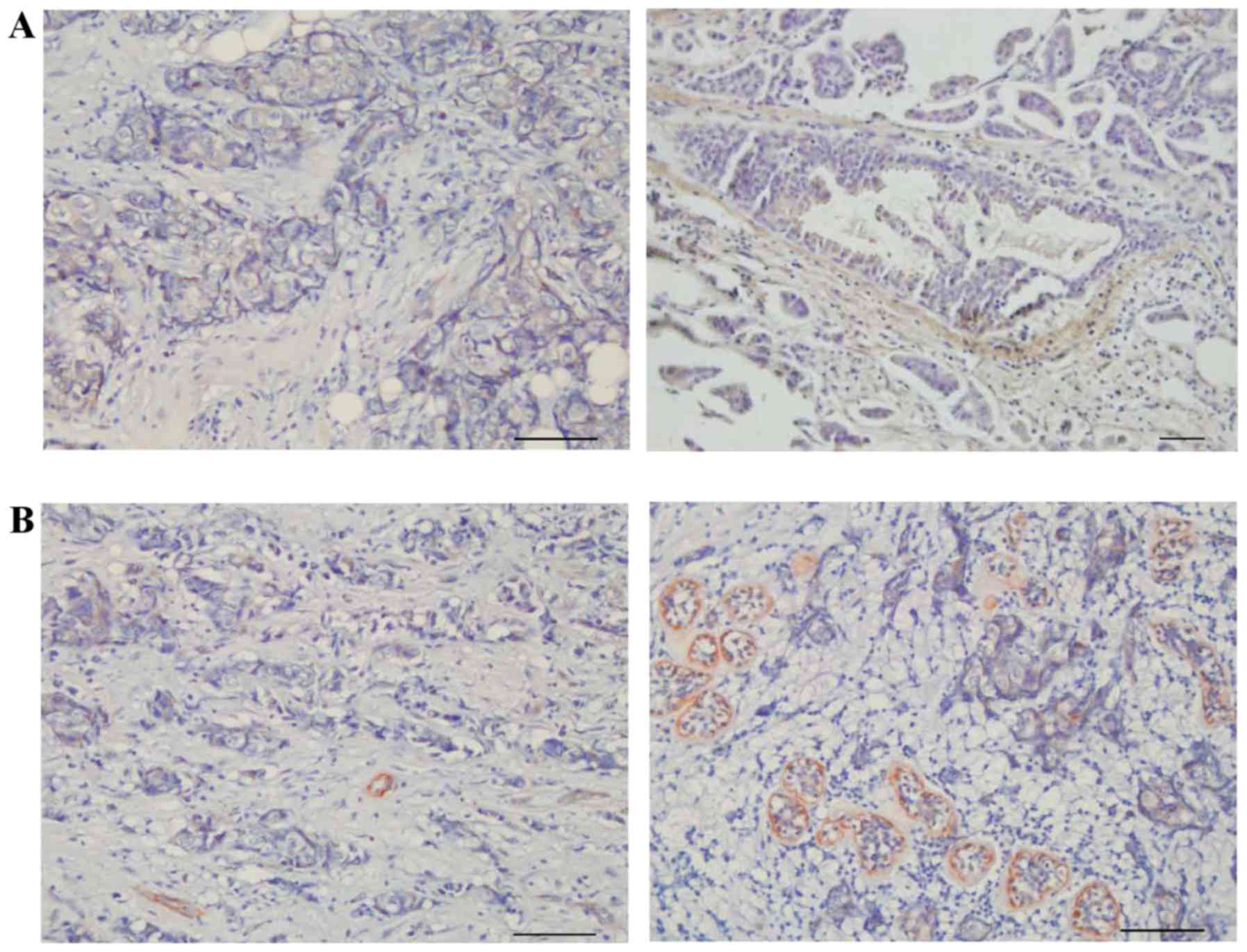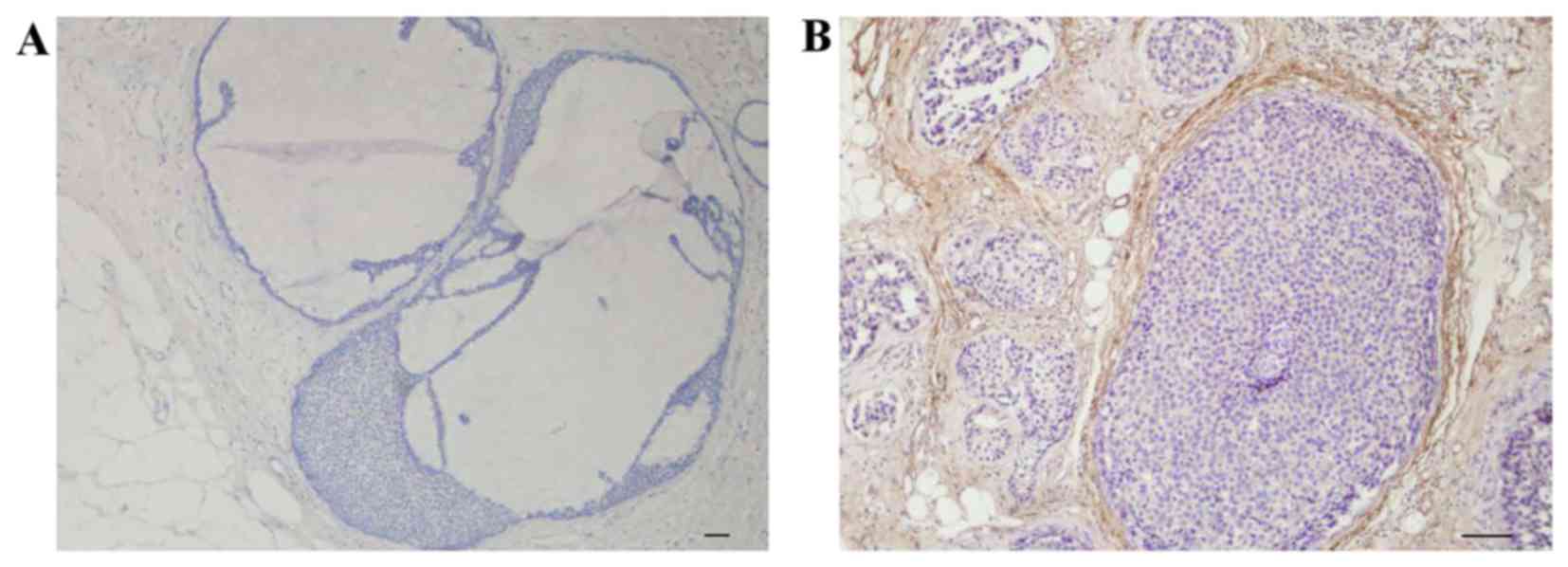|
1
|
Bonnans C, Chou J and Werb Z: Remodelling
the extracellular matrix in development and disease. Nat Rev Mol
Cell Biol. 15:786–801. 2014. View
Article : Google Scholar : PubMed/NCBI
|
|
2
|
Pickup MW, Mouw JK and Weaver VM: The
extracellular matrix modulates the hallmarks of cancer. EMBO Rep.
15:1243–1253. 2014. View Article : Google Scholar : PubMed/NCBI
|
|
3
|
Salvatore V, Focaroli S, Teti G, Mazzotti
A and Falconi M: Changes in the gene expression of co-cultured
human fibroblast cells and osteosarcoma cells: The role of
microenvironment. Oncotarget. 6:28988–28998. 2015. View Article : Google Scholar : PubMed/NCBI
|
|
4
|
Brady-Kalnay SM: Molecular mechanisms of
cancer cell-cell interactions: Cell-cell adhesion-dependent
signaling in the tumor microenvironment. Cell Adh Migr. 6:344–345.
2012. View Article : Google Scholar : PubMed/NCBI
|
|
5
|
Law EW, Cheung AK, Kashuba VI, Pavlova TV,
Zabarovsky ER, Lung HL, Cheng Y, Chua D, Lai-Wan Kwong D, Tsao SW,
et al: Anti-angiogenic and tumor-suppressive roles of candidate
tumor-suppressor gene, Fibulin-2, in nasopharyngeal carcinoma.
Oncogene. 31:728–738. 2012. View Article : Google Scholar : PubMed/NCBI
|
|
6
|
Alcendor DJ, Knobel S, Desai P, Zhu WQ and
Hayward GS: KSHV regulation of fibulin-2 in Kaposi's sarcoma:
Implications for tumorigenesis. Am J Pathol. 179:1443–1454. 2011.
View Article : Google Scholar : PubMed/NCBI
|
|
7
|
Yi CH, Smith DJ, West WW and Hollingsworth
MA: Loss of fibulin-2 expression is associated with breast cancer
progression. Am J Pathol. 170:1535–1545. 2008. View Article : Google Scholar
|
|
8
|
Baird BN: Fibulin-2 stabilizes tumor
extracellular matrix and drives malignant progression of lung
adenocarcinoma (unpublished PhD dissertation). The University of
Texas. 2972012.
|
|
9
|
Baird BN, Schliekelman MJ, Ahn YH, Chen Y,
Roybal JD, Gill BJ, Mishra DK, Erez B, O'Reilly M, Yang Y, et al:
Fibulin-2 is a driver of malignant progression in lung
adenocarcinoma. PLoS One. 8:e670542013. View Article : Google Scholar : PubMed/NCBI
|
|
10
|
Hasengaowa Kodama J, Kusumoto T, Shinyo Y,
Seki N, Nakamura K, Hongo A and Hiramatsu Y: Loss of basement
membrane heparan sulfate expression is associated with tumor
progression in endometrial cancer. Eur J Gynaecol Oncol.
26:403–406. 2005.PubMed/NCBI
|
|
11
|
Wilson DF, Jiang DJ, Pierce AM and Wiebkin
OW: Oral cancer: Role of the basement membrane in invasion. Aust
Dent J. 44:93–97. 1999. View Article : Google Scholar : PubMed/NCBI
|
|
12
|
Kluge M, Mann K, Dziadek M and Timpl R:
Characterization of a novel calcium-binding 90-kDa glycoprotein
(BM-90) shared by basement membranes and serum. Eur J Biochem.
193:651–659. 1990. View Article : Google Scholar : PubMed/NCBI
|
|
13
|
Olijnyk D, Ibrahim AM, Ferrier RK, Tsuda
T, Chu ML, Gusterson BA, Stein T and Morris JS: Fibulin-2 is
involved in early extracellular matrix development of the
outgrowing mouse mammary epithelium. Cell Mol Life Sci.
71:3811–3828. 2014. View Article : Google Scholar : PubMed/NCBI
|
|
14
|
Longmate WM, Monichan R, Chu ML, Tsuda T,
Mahoney MG and DiPersio CM: Reduced fibulin-2 contributes to loss
of basement membrane integrity and skin blistering in mice lacking
integrin α3β1 in the epidermis. J Invest Dermatol. 134:1609–1617.
2014. View Article : Google Scholar : PubMed/NCBI
|
|
15
|
Gu YC, Nilsson K, Eng H and Ekblom M:
Association of extracellular matrix proteins fibulin-1 and
fibulin-2 with fibronectin in bone marrow stroma. Br J Haematol.
109:305–313. 2000. View Article : Google Scholar : PubMed/NCBI
|
|
16
|
Yue W, Sun Q, Landreneau R, Wu C,
Siegfried JM, Yu J and Zhang L: Fibulin-5 suppresses lung cancer
invasion by inhibiting matrix metalloproteinase-7 expression.
Cancer Res. 69:6339–6346. 2009. View Article : Google Scholar : PubMed/NCBI
|















